Life
Sign up for our newsletter
We summarize the week's scientific breakthroughs every Thursday.
-
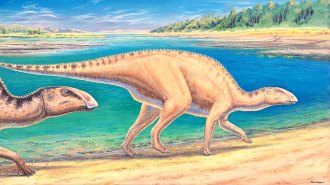 Life
LifeNew fossils from Patagonia may rewrite the history of duck-billed dinosaurs
New findings are adding a wrinkle to researchers’ understanding of how duck-billed dinosaurs conquered the Cretaceous world.
By Jake Buehler -
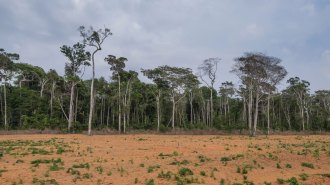 Ecosystems
EcosystemsThe Amazon might not have a ‘tipping point.’ But it’s still in trouble
Scientists race to foretell the fate of the vast forest facing deforestation and climate change.
By Nikk Ogasa -
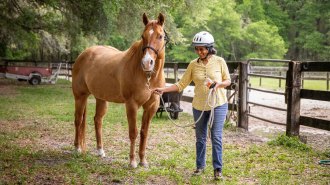 Tech
TechHow understanding horses could inspire more trustworthy robots
Computer scientist Eakta Jain pioneered the study of how human-horse interactions could help improve robot design and shape human-robot interactions.
-
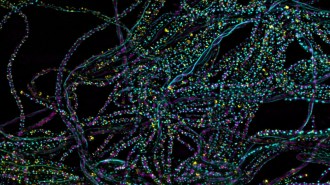 Chemistry
ChemistryOne photon is all it takes to kick off photosynthesis
A single particle of light is the spark that begins the process of turning light to chemical energy in photosynthetic bacteria, a new study confirms.
-
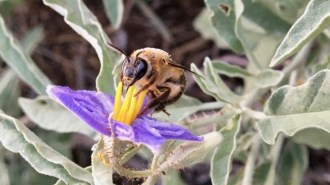 Life
Life‘Polyester bees’ brew beer-scented baby food in plastic cribs
Ptiloglossa bees’ baby food gets its boozy fragrance from fermentation by mysteriously selected microbes.
By Susan Milius -
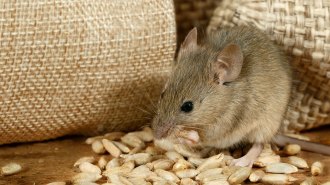 Animals
AnimalsCamouflaging wheat with a wheat smell could be a new approach to pest control
Wheat fields coated in wheat germ oil confuse the noses of mice, reducing seed loss by more than 60 percent, a new study finds.
-
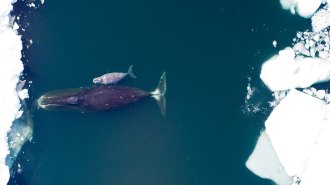 Animals
AnimalsBowhead whales may have a cancer-defying superpower: DNA repair
Bowhead whale cells repair damaged DNA exceptionally well, an ability that could prevent cancer and help the marine mammals live for centuries
By Meghan Rosen -
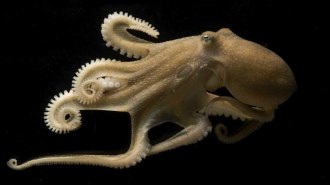 Animals
AnimalsRNA editing helps octopuses cope with the cold
California two-spot octopuses tweak the proteins they make, potentially to help maintain brain function when temperatures dip.
By Freda Kreier -
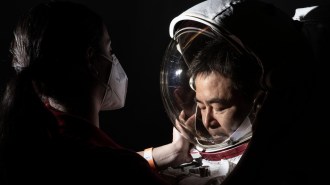 Neuroscience
NeuroscienceBrain cavities that swell in space may need at least 3 years to recover
MRI scans of astronauts show that duration in space and time between flights affect how much the brain’s fluid-filled cavities expand during missions.
-
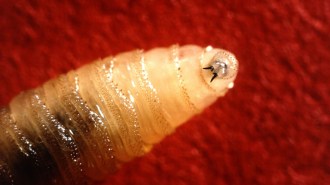 Life
Life50 years ago, flesh-eating screwworms pushed scientists to mass produce flies
"Fly factories” dreamed up in the early 1970s have helped North and Central America keep screwworms in check for decades.
By Nikk Ogasa -
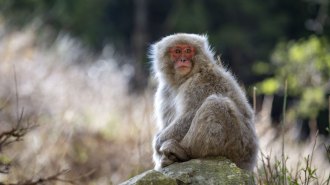 Animals
AnimalsWhen and why did masturbation evolve in primates? A new study provides clues
In a first-of-its-kind comparative study, researchers show that primates were masturbating 40 million years ago and that the behavior may help males keep their sperm fresh.
-
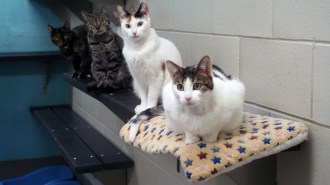 Life
LifeA gene therapy shot might keep cats from getting pregnant without being spayed
Even after mating with fertile males, females given the cat contraceptive, which targets an ovulation-preventing hormone, did not get pregnant.